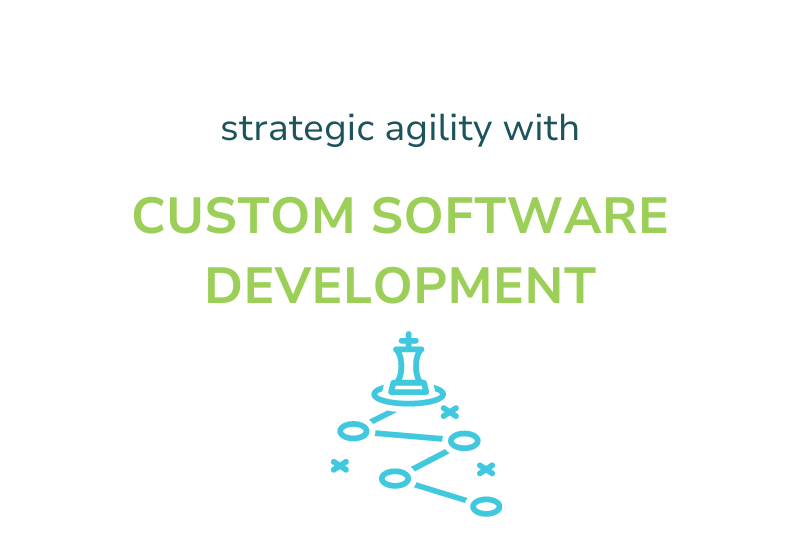It’s not uncommon for businesses to establish themselves on what seems like stable foundations. However, these foundations, while sturdy enough to weather immediate market challenges, may lack the resilience needed for the long haul. Stability, alone, doesn’t guarantee long-term success.
What a successful and strong-rooted business needs is a comprehensive and overarching strategy that is agile enough to withstand internal and external fluctuations. Nowadays, that has become more feasible with the help of custom software development.
Defining Strategy: From Vision to Action
Strategic thinking is essential, but its actualization is far from simple. It goes beyond crafting a clear vision and mission statement. Developing a business’s strategy requires careful planning, adaptability, and foresight. It must permeate every department and aspect of the business to build truly resilient foundations.
Strategy isn’t merely about setting long-term goals; it’s about translating vision into actionable plans that guide every facet of the organization. It’s a comprehensive roadmap for navigating uncertainties and seizing opportunities in an ever-evolving marketplace.
Implementing Strategy Across Departments
The successful execution of a strategy relies on its seamless integration across all departments. Each department, from human resources and marketing to operations and finance, plays a crucial role in achieving the overarching strategic objectives.
Collaboration, communication, and alignment of goals, across every department, are paramount to ensure that every aspect of the business contributes to the collective vision. However, equally crucial is the ability to track the progress of its execution. Strategic heads of departments must have the right data at their fingertips to be able to measure the success of their daily tactics.
Embracing Agility in Strategy Development
The right quality of data and the most analytical of minds can’t go far without agility. Being agile is indispensable for strategy development and execution. It’s about the ability to pivot quickly in response to changing market conditions, emerging trends, and evolving customer preferences.
Agility requires flexibility, adaptability, and a willingness to experiment and iterate on strategies and tactics as circumstances evolve.
The Role of Technology in Driving Strategic Agility
At the nexus of strategy and agility lies technology, particularly custom software development. Tailored digital solutions empower organizations to leverage data for informed strategic decision-making. They provide the tools necessary to align goals with strategy, facilitate collaboration across departments, and drive continuous improvement and innovation.
Integrating process automation through custom applications enhances strategy execution. These systems are designed to continuously collect, store, and extract data into comprehensive reports. This offers tangible metrics for department heads to gauge progress and identify obstacles in achieving overarching strategic goals.
It’s all about data, and when used properly, it can be incredibly powerful. Custom software development ensures data is structured, manipulated, stored, and retrieved to fit an organization’s specific needs, enabling adaptation and growth.
Fabled Solutions Example - MC Dispatch
MC Dispatch is a great example of a company that has demonstrated strategic agility, in the logistics and shipping industry, by incorporating process automation. Read more about the work our team has done for this Edmonton and Calgary-based company by visiting the case study on our website.
Investing in Strategic Agility with Custom Software Development
Building strategic foundations requires a holistic approach that integrates vision, execution plans, and agility. In a world where change is the only constant, strategic agility has become a necessity for a business’s survival.
Keep in mind that growth is not solely about expanding physical infrastructure or increasing headcount. It’s about investing in the underlying infrastructure and systems. Don’t think of custom software development as a luxury, instead as an essential asset in building resilient, adaptable businesses poised for success in a market of constant disruption.



